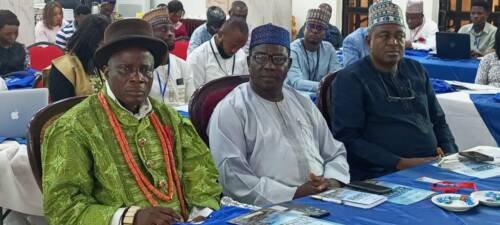A former Vice Chancellor, Lagos State University, Prof. Olanrewaju Fagbohun, has said that 52 developing countries are suffering severe unsustainable national debt burdens.
He said the increase in the costs of debt servicing associated with climate vulnerability has become an issue of serious concern.
Fagbohun stated this on Monday in Abuja while presenting a keynote address at the 2nd National Conference on Climate Change 2023, organised by Corporate Accountability & Public Participation Africa’s (CAPPA), with the theme: “Creating Agenda for Sustainable Climate Finance for Nigeria”.
According to him, For emerging markets, low and medium-income economies in particular, climate vulnerability and unsustainable debt burdens have diminished the fiscal space for investment in climate resilience. Currently, 52 developing countries are suffering severe unsustainable national debt burdens.
Fagbohun added that following intensifying campaigns against ‘dirty industries’, some of the developed countries are migrating their production to developing countries.
He noted that among the direct and indirect consequences of climate change which continue to dawn on humanity on a daily basis are destruction of livelihoods, spread of diseases, disruption of ecosystems, deepening conflicts as a result of diminishing resources, destruction of critical infrastructure, among others.
Fagbohun stressed that wealthy countries who were responsible for most greenhouse gas emissions suffer the least from climate change, while the poorest countries are the most vulnerable and bear a disproportionate share of the costs arising from climate change events.
He added: “None of the world’s major carbon emitters, including the United States of America, China, European Union, Indonesia, the Russian Federation and Brazil has made commitments showing unequivocal intention to align with climate warming of 20C as the upper limit for global warming.
“As we all should know, making policies is one thing; matching the policies with action is a whole new ball game. Rather than reduce their emissions, what some of the developed countries are doing as a result of intensifying campaigns against ‘dirty industries’ is migrate their production to developing countries, thereby relocating their emissions.”
He said: “Nonetheless, the agitation by developing countries for the creation of a fund that will support the funding of climate related loss and damage did not abate. The reason for the unrelenting push is not far-fetched: the concerns driving the momentum for loss and damage finance is already a reality that is very much here with us.”
Fagbohun emphasised that a number of countries, particularly the world’s poorest and most vulnerable communities and countries who have contributed the least to global greenhouse gas emissions were already facing devastating impacts.
Earlier, the Executive Director of Corporate Accountability and Public Participation Africa (CAPPA), Akinbode Oluwafemi, said climate finance in Nigeria has relied exclusively on concessional debt which is about 46 per cent and non-concessional debt at 25 per cent.
He noted that grant and equity-based finance currently play a relatively minimal role in Nigeria’s climate finance ecosystem, at 5 per cent and 12 per cent respectively.
He said, “Nigeria’s climate finance is not yet reflective of the country’s vulnerability. Efforts in adaptation and mitigation are yet to be scaled up significantly to embrace our realities. Nigeria like every other country in sub-Saharan Africa is classed as a vulnerable country considering its exposure to climate risks.
Oluwafemi pointed out that the effects of climate change are set to accelerate over the coming years unless progressive climate finance and a well-structured loss and damage funding mechanism are institutionalised and appropriately managed.
He stressed that there was undoubtedly a need to create a new source of finance that would address climate risks and arrest emission upsurge.

